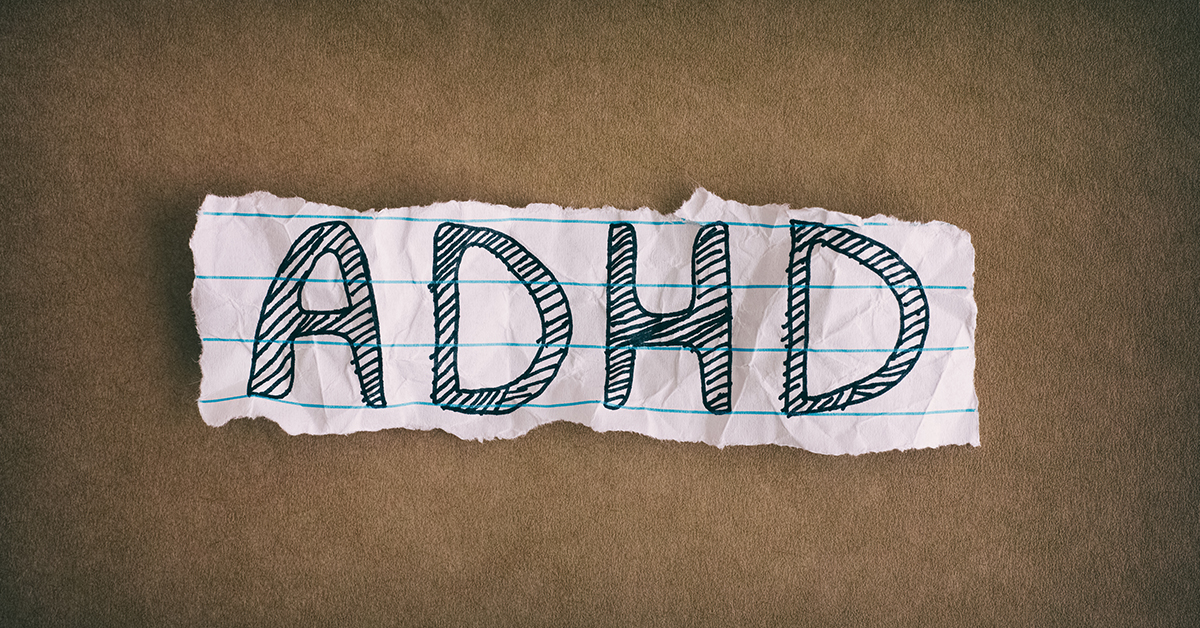
It wasn’t until the youngest of her three children was diagnosed with ADHD that 45-year-old Allison Bolt realized that she had all the symptoms as well. Going over the checklist of symptoms for her youngest daughter, Julie, it hit her out of nowhere, and things started to fall into place.
“I didn’t want to believe it at first, but at the same time, I was so relieved to get a diagnosis finally. I no longer had to feel like I was a bad mom.”
While parents are warned to expect the unexpected when they have their first child, the unexpectedness of parenting with ADHD is a curveball that no one sees coming. Unfortunately, there is still a lack of awareness of adult ADHD, which makes it difficult for an early diagnosis – especially for those who exhibit inattentive symptoms. These include difficulty focusing, forgetfulness, inability to finish tasks, not paying attention to details, and a lack of organization. Women’s symptoms tend to be easily dismissed as they are more likely to cover up the symptoms than their male counterparts.
Parenting with ADHD can be even more difficult, especially when managing a household and organizing your life along with your children’s. Whether you’re a new parent, a single parent, a working parent, or a stay-at-home parent, it doesn’t get easier – but it helps to know that you’re not alone.
According to a study on parental ADHD symptomology and ineffective parenting, mothers with higher ADHD symptoms reported higher levels of home chaos. Moreover, their symptoms were positively associated with inconsistent disciplinary practices, whereas fathers with ADHD symptoms resulted in low involvement and less supportiveness. The study concluded that some parenting practices are less effective for mothers and fathers who have symptoms of ADHD, and they are more likely to have disorganized homes.
Some of the most prominent challenges of parenting with ADHD arise from the lack of organizational skills. Parents struggle to keep up with their children’s schedules and get easily frustrated when they cannot manage their behavior.
Most moms are likely to be diagnosed with depression rather than ADHD, which is another challenge because treatment and managing symptoms of ADHD are very different. It would be much more helpful for both mothers and their children if parents who have ADHD get an accurate diagnosis and work on a treatment plan with the healthcare provider that suits them best.
Adults with ADHD experience brain fog, and when you’re on a sleepless schedule trying to function as a human being and raising another, things tend to get messy. You might feel less confident in your abilities and like your self-esteem is declining.
This is very common for adults who are unaware of their condition until much later in life and were flying under the radar because your maladaptive daydreaming meant you’re a creative thinker and problem solver. Chances are you were excelling in your field because of your ability to work in bursts of energy and meet your deadlines. However, having a child, or any major life change for that matter, makes it even more difficult to cope with the symptoms.
However, does this mean that adults with ADHD should not be parents? Surely, there is some method to the madness and a way for parents to cope. Here are some tips and strategies to help parents with ADHD make it more manageable for adults with ADHD.

It’s very easy to be hard on yourself and over-critical, especially as a parent when you have to put up with several unsolicited opinions of others. It’s also easy to get overwhelmed with the sudden responsibility of being a parent, and your old coping mechanisms might not be helping you sail through. Make sure you’re not making yourself feel guilty for something that’s not in your control.
As your children get older, the list of extra-curricular activities, doctor’s appointments, and parent-teacher meetings keeps expanding. It becomes even more challenging to keep track of it all without writing it down.
Divide the list of activities based on the tasks – one for daily tasks, one for weekly chores, and one for monthly activities. These will differ with each household, family structure, and dynamic but usually involve several microtasks as well. For example, your daily task may be to make breakfast, but the micro-tasks include:
1. waking your child up so they get ready
2. while you assemble the ingredients
3. and prepare the food.
Your weekly chores for the task may include shopping for ingredients, but before that, you will have to make a shopping list and schedule a time to go to the store.
A monthly chore could include paying the bills, and micro-tasks include collecting your bills and the stamps.
See Also: Causes and Symptoms of ADHD
As your children get older, help them get used to the idea of making their lists and being responsible for some of the microtasks, and consider recruiting other family members to lend a helping hand. Talk to a friend, partner, family member, or other parents who might be in the same boat as you. You don’t have to go through it alone.
Most importantly, when you feel like the normal range of chaos is expanding, reach out to professionals and talk about your symptoms. The stigma around ADHD, especially when an adult has it, can make it difficult for you to open up because it feels like you’re exaggerating, but your feelings are completely valid. Your doctor will be able to offer you better techniques to manage your symptoms.